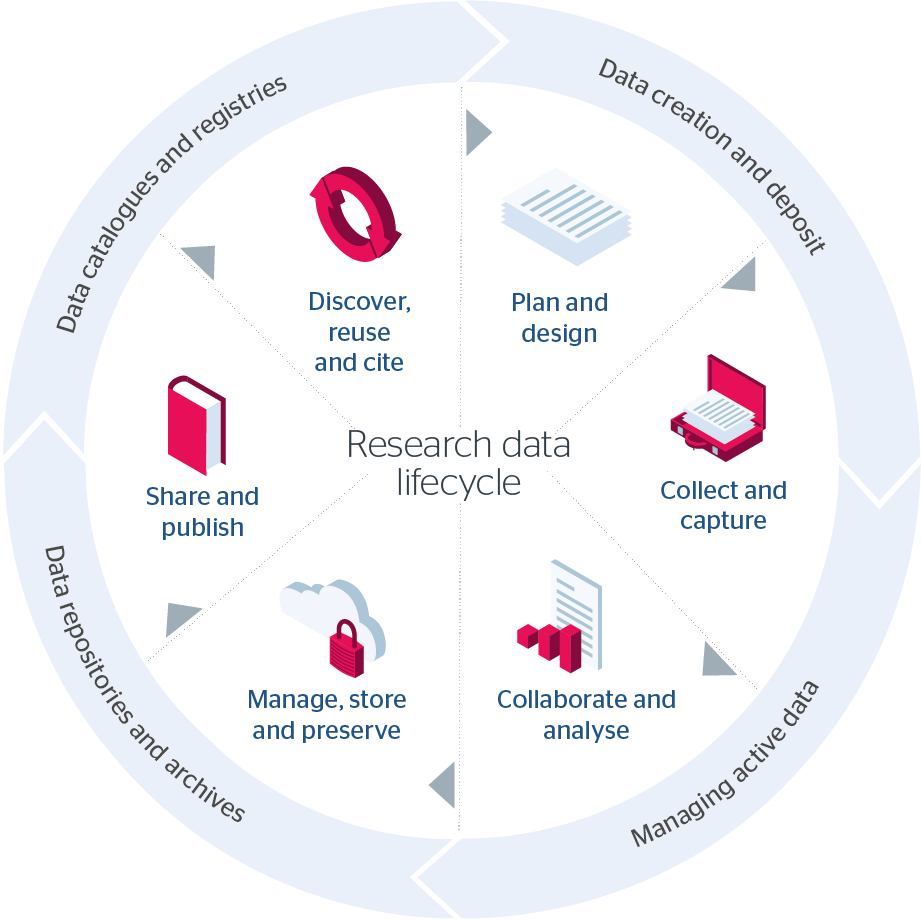Authors: Kirsty Wallis, Thomas Kaarsted, Simon Worthington, Alisa Martek and Dragana Janković.
Library Infrastructures and Citizen Science
Section Editor Kirsty Wallis
v1.0, 2023
Series: Citizen Science for Research Libraries — A Guide
DOI: 10.25815/tz0x‑m353
EFFECTIVE RESEARCH DATA MANAGEMENT

By Dr James Houghton & Dr Christiana McMahon (ORCID iD: 0000-0002-9330-2686), University College London.
Article DOI: 10.25815/f3wr-we72
Research data management refers to guidelines and best practices that guide researchers through the process of planning a project, undertaking research, publishing their findings, and archiving their outputs. These concepts are intended to help researchers and other scientists successfully run their projects whilst meeting ethical and legal requirements for handling data or evidence, using IT services effectively to prevent data loss and mitigate other risks, and ensure the integrity and transparency of research. Institutions, funding agencies, and publishers all have expectations regarding data management.
Most funding agencies now expect a data management plan (DMP) to be written as part of a project proposal. Funders want to know data will be properly looked after and there will be a maximum return on their investment. Institutions and publishers also have expectations regarding data retention and availability for reproducibility and transparency purposes and that other potential users of the data can reuse and repurpose these to help maximise their research potential. As an example, the Wellcome Trust has a policy covering data, software and other materials with funders more generally requiring DMPs such as Horizon Europe.
Effective data management policy and practice encourages individuals to carry out activities routinely performed as part of a project, but in a more structured and rigorous way. Ideally this good practice needs to be applied before the project has started so that important decisions can be identified and any risks to the project and data or evidence, are sufficiently mitigated. Jisc and The UK Data Archive provide useful guidance on managing projects:
-
Research data management toolkit: https://www.jisc.ac.uk/guides/rdm-toolkit
-
Research Data Management: https://www.data-archive.ac.uk/managing-data/
Research data management policy and practice form a part of the much wider issue of open science and scholarship — something that is fostering change across academia. A guide to data and open science is available from UCL.
Infobox: Common Issues |
|
Aims and objectives are unique to each individual research project, so are data management plans — tailoring the plans to suit the needs of specific projects means that plans can end up looking very different from each other. Nonetheless, common issues include: |
|
Bibliography
User Type
- Educator/museum
- Researcher/research institution
Resource type
- Collecting and processing data
- Digital tools
Research Field



